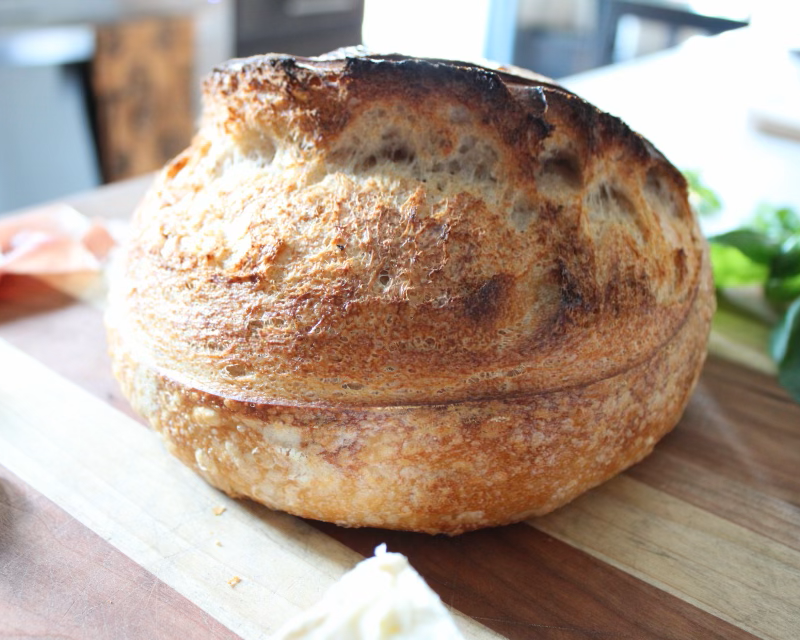Sourdough bread has been enjoyed by people around the world for centuries. With its distinct flavor, chewy texture, and unique fermentation process, sourdough offers numerous benefits that set it apart from other types of bread. In this informational document, we will delve into the fascinating world of sourdough and explore its many advantages for our health, digestion, and overall well-being.
- Natural Fermentation: Sourdough bread is created through a natural fermentation process, which involves wild yeast and lactic acid bacteria present in the dough. This process allows for a longer rise time compared to conventional bread making, resulting in a unique flavor and texture. The natural fermentation of sourdough also helps to break down complex carbohydrates and proteins, making them more easily digestible.
- Improved Digestibility: The fermentation process in sourdough breaks down starches and gluten, making them easier to digest. The presence of lactic acid bacteria helps pre-digest gluten, potentially benefiting individuals with mild gluten sensitivities. Moreover, sourdough has a lower glycemic index compared to bread made with commercial yeast, meaning it causes a slower rise in blood sugar levels and provides sustained energy.
- Increased Nutrient Absorption: Sourdough bread contains phytic acid, a compound found in grains that can bind to minerals like zinc, iron, and calcium, preventing their absorption in the body. However, the long fermentation process of sourdough neutralizes phytic acid, allowing for better mineral absorption. This means that the nutrients present in the bread, such as vitamins and minerals, become more bioavailable and easier for our bodies to utilize.
- Gut Health and Probiotics: The lactic acid bacteria present in sourdough have a positive impact on gut health. These beneficial bacteria can help improve digestion by breaking down carbohydrates and producing enzymes that aid in nutrient absorption. The consumption of sourdough bread contributes to a diverse gut microbiota, which is crucial for maintaining a healthy immune system, preventing inflammation, and promoting overall digestive well-being.
- Reduced Gluten Content: While sourdough bread is not completely gluten-free, the fermentation process significantly reduces the gluten content compared to conventionally made bread. The extended fermentation time allows for the breakdown of gluten proteins, potentially making it easier to tolerate for individuals with mild gluten sensitivities. However, it is important to note that people with celiac disease should still opt for certified gluten-free sourdough made from gluten-free grains.
- Longer Shelf Life: Sourdough bread has a longer shelf life compared to other bread varieties due to its natural acidity and the presence of lactic acid bacteria. These factors create an environment that inhibits the growth of mold and other harmful microorganisms, keeping the bread fresh for a more extended period. This means you can enjoy your sourdough loaf over several days without sacrificing its taste or quality, reducing food waste in the process.
- Flavor and Texture: Sourdough bread has a unique, tangy flavor that is highly prized by bread lovers. The longer fermentation process enhances the depth and complexity of the bread’s taste, resulting in a rich, nutty, and slightly sour profile. Additionally, sourdough has a moist and chewy texture with a crispy crust, making it a delight to eat.
- Potential Prebiotic Effects: Prebiotics are indigestible fibers that serve as food for beneficial bacteria in our gut. Sourdough bread, particularly those made with whole grains, can act as a prebiotic, promoting the growth and activity of beneficial gut bacteria. This can contribute to a healthier gut microbiome and improved overall gut function.
By considering these elaborated benefits, you can gain a deeper understanding of why sourdough bread is a preferred choice for many bread enthusiasts seeking not only great taste but also improved digestion, enhanced nutrient absorption, gut health support, a longer-lasting bread option, exceptional taste, and prebiotic effects.
